The Ultimate Guide to Carpet vs Hardwood Flooring
With so many different options to choose from, it can be difficult to decide which type of flooring will best fit your space, your budget, and your personal preferences. In our comprehensive guide we’ll compare the differences in durability, installation, and costs, so you can choose your next flooring with confidence.
Carpet vs Hardwood, Laminate and Vinyl
Before we look at each point in more detail, we’ve put together this quick overview of how carpeting compares to the other flooring choices available:
Carpet | Hardwood | Laminate | Vinyl | |
Materials | Often made from wool or a synthetic fibre | Made from timber | 100% synthetic materials | 100% synthetic materials |
Installation | Professional fitting strongly recommended | Professional fitting strongly recommended | DIY friendly | DIY friendly |
Appearance | Plush, warm and cosy | Elegant and luxurious. | Imitates the appearance of wooden floors | Can imitate the appearance of wood/stone |
Maintenance | Can attract debris but easily hoovered | Easily cleaned but must be treated | Easily cleaned with soap/water | Easily cleaned with soap/water |
Durability | Lasts for around 15 years | Lasts up to 100 years | Lasts around 10 years | Lasts between 10-20 years |
Cost (materials and labour inc)* | £25 per sq m | £60 per sq m | £20 per sq m | £25 per sq m |
Please note: installations vary considerably so these prices are only intended as a comparative guide. Please contact your local professional installer for an accurate quotation.
Carpet vs Flooring Materials
Carpet Materials
Modern carpets are made from wool or synthetic fibres such as nylon and polypropylene.
Wool carpets are the best choice when you want a feeling of luxury, although naturally they tend to be the most expensive carpeting option. By contrast, polypropylene carpets and nylon carpets are an increasingly popular option due to their affordability, with the fibres being developed to offer sought after properties such as intrinsic stain resistance.
Carpeting can be supplied on rolls for a wall-to-wall broadloom carpet, or as individual carpet tiles which makes it much easier to replace and install carpet in your property.
Within each choice of carpet material are a variety of different construction types which change a carpet’s appearance and durability. We cover these in more detail in our guide to the different types of carpet construction.
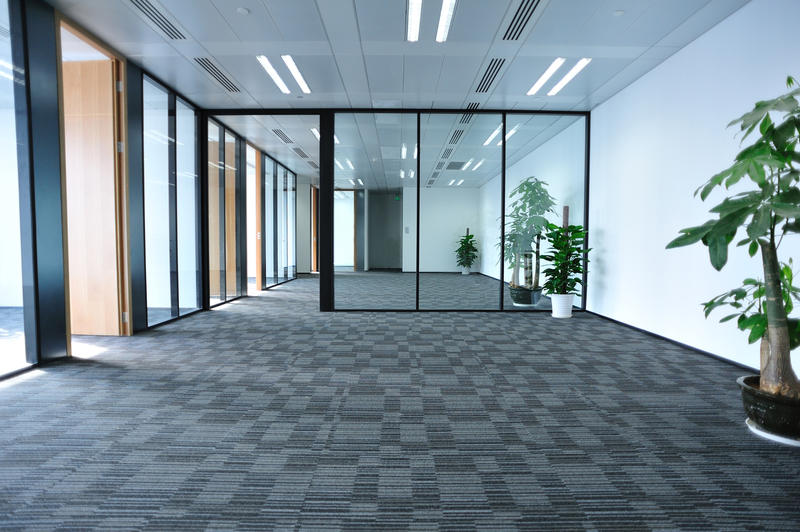
Hardwood Flooring Materials
Hardwood is another popular choice when you want premium flooring. Made from solid wood and supplied in planks, hardwood floors offer a timeless, natural appearance in a variety of species and finishes.
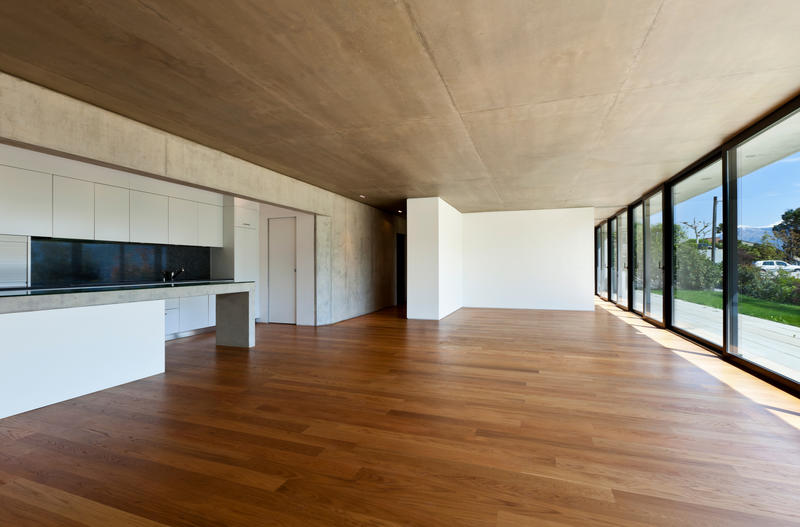
Vinyl Flooring Materials
An entirely synthetic material, Vinyl flooring is made from several layers of PVC (polyvinyl chloride), with a backing of either felt or foam. Vinyl floors are supplied in individual strips which are easily installed, with a wide variety of colours and patterns to choose from for a truly customisable flooring option.
Vinyl is easy to maintain and benefits from strong water-resistance, making this type of flooring a popular choice for kitchens and bathrooms.
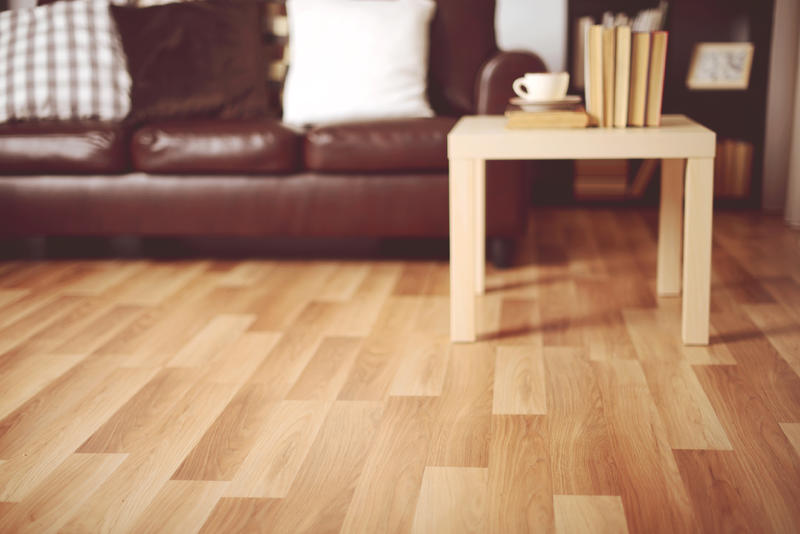
Laminate Flooring Materials
Another synthetic flooring option, laminate consists of a fibreboard core which is topped with a decorative panel that replicates the look and feel of real wood. Laminate flooring is designed to be an entry-level option which still maintains a good deal of durability.
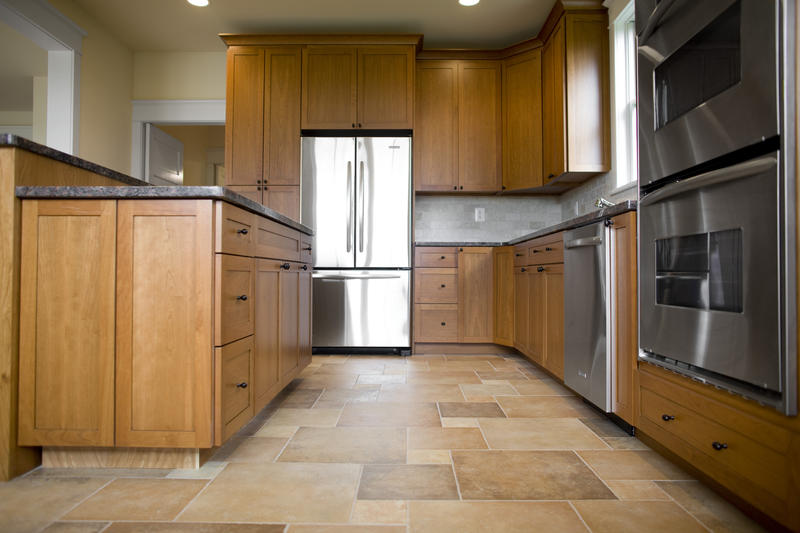
Installing Carpet vs Hardwood Flooring
Carpet Installation
Wall-to-wall broadloom carpets need to be installed in one piece, and cut to the exact size and shape of your room. Installing carpets can be a difficult task, and we’d strongly recommend hiring a professional to ensure your carpet fits properly to maximise its lifespan.
Carpet tiles are much easier to install, and while we’d recommend having a professional lay the entire room for the first time, you should be able to maintain them yourself by swapping out individual worn or stained tiles for a new one.
Our in-depth guide on installing carpets and carpet tiles covers the steps in more detail.
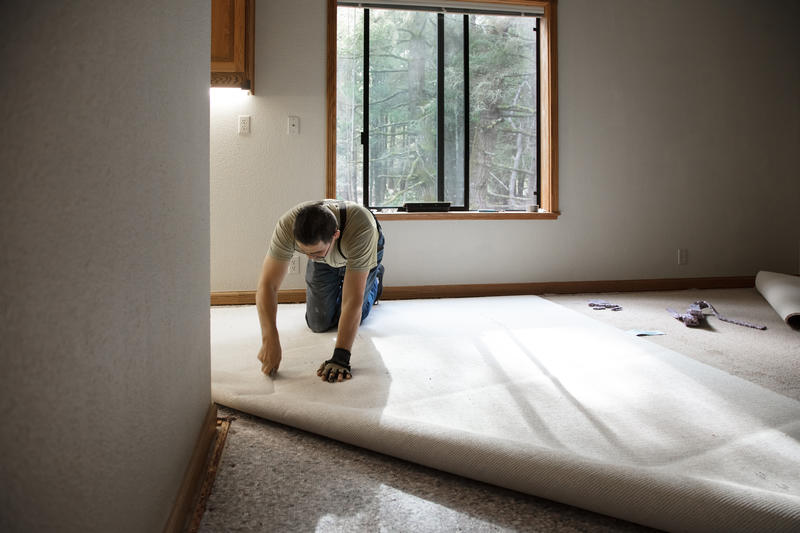
Hardwood Floor Installation
As with carpet, hardwood flooring should be fitted by a professional as it can be a lengthy process. Your new flooring will need to acclimatise to the room, and it’s crucial that everything is properly prepared to make sure the floor is flat, clean and dry before installation, as wooden floors will expand when damp.
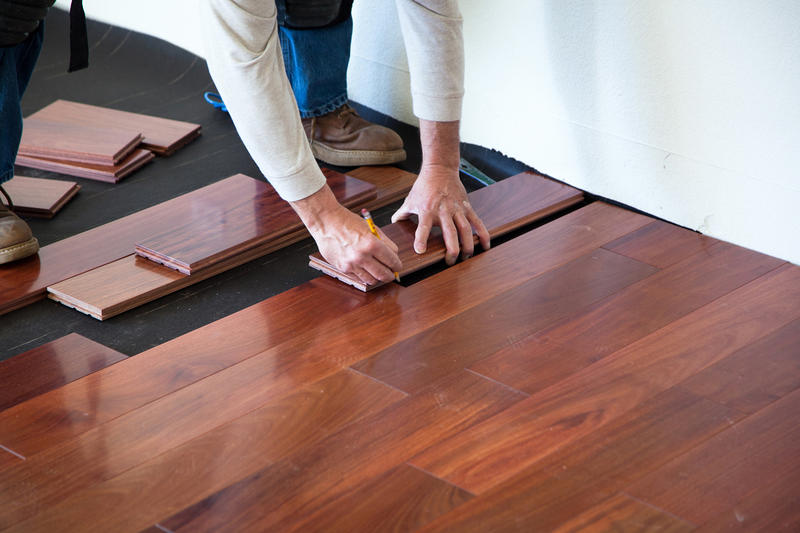
Laminate Flooring Installation
Laminate is easier to install than hardwood flooring, and may be manageable with a do-it-yourself approach provided you follow best practices.
As with hardwood flooring, you will need to prep your room to make sure the laminate can properly acclimatise to the temperature and humidity. Laying a subfloor is also required to bring additional benefits including noise reduction and insulation, as well as helping to expand the lifespan of your flooring.
Laminate flooring panels should generally be quicker to install than hardwood, usually featuring some type of groove fitting system to slot into place.
You’ll need to consider the room’s light and shape when deciding on the most suitable direction to lay your laminate flooring.
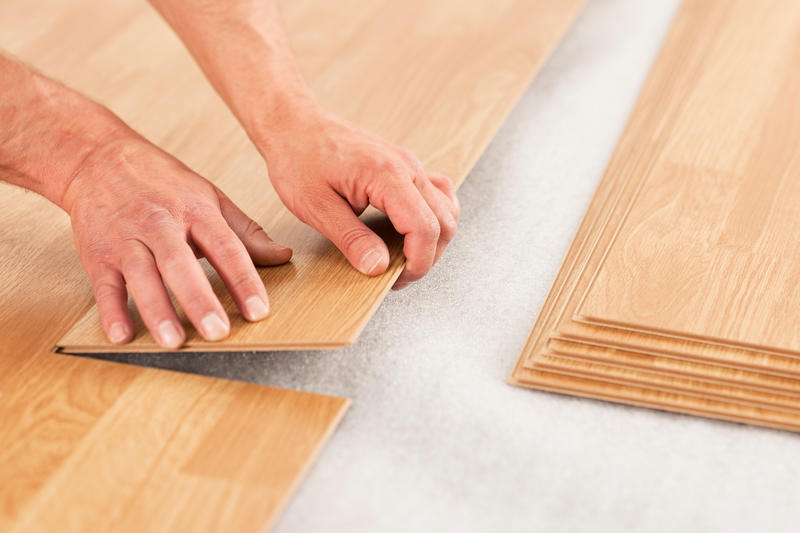
Vinyl Flooring Installation
While we would still recommend having a professional fit your vinyl flooring for best results, this is another area where a DIY-enthusiast could potentially handle the installation alone.
As vinyl has some degree of water resistance, an underlay may not be needed depending on the condition of your subfloor, but this needs to be structurally sound, flat, and dry before you proceed.
Vinyl is a bit more forgiving than other types when it comes to the direction the panels are laid, however you will need to be absolutely sure of the direction across the room before the pieces are glued into place with appropriate adhesive.
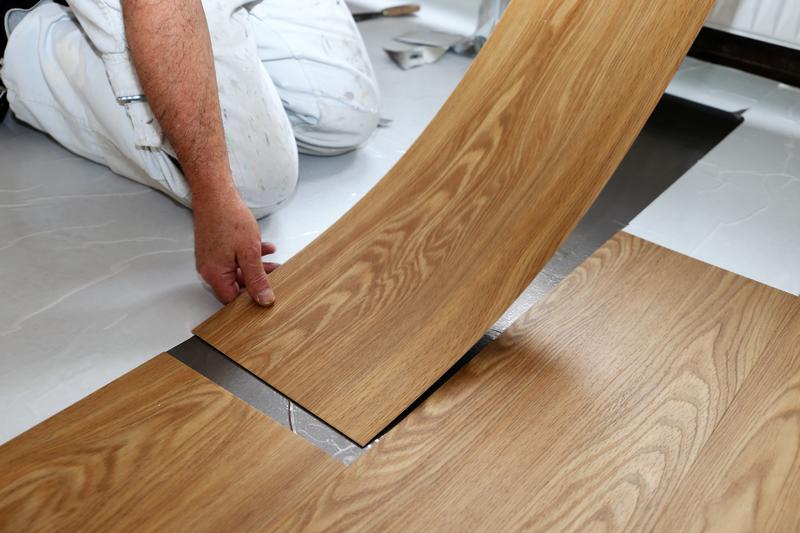
Carpet vs Flooring Durability & Maintenance
Carpet Durability & Maintenance
A good quality carpet should last a long time if maintained properly, with many contract carpets in our range covered by a limited warranty up to 10 years.
While vacuuming helps keep any carpet in good condition, different types of carpets may also need more frequent care, including dealing with carpet shedding, sprouting and pulled loops.
Spillages and stains are a common problem which impact the appearance and longevity of your carpets. This is one of the advantages of synthetic polypropylene carpets, which come with added stain-resistant qualities.
At Birch Carpets we also supply a range of heavy duty carpets which carry a ‘heavy contract’ rating, perfect for reducing wear and tear in high traffic areas.
As you can see, carpet durability can vary depending on the type you buy, but regular maintenance and carpet cleaning are essential to get the most out of your investment.
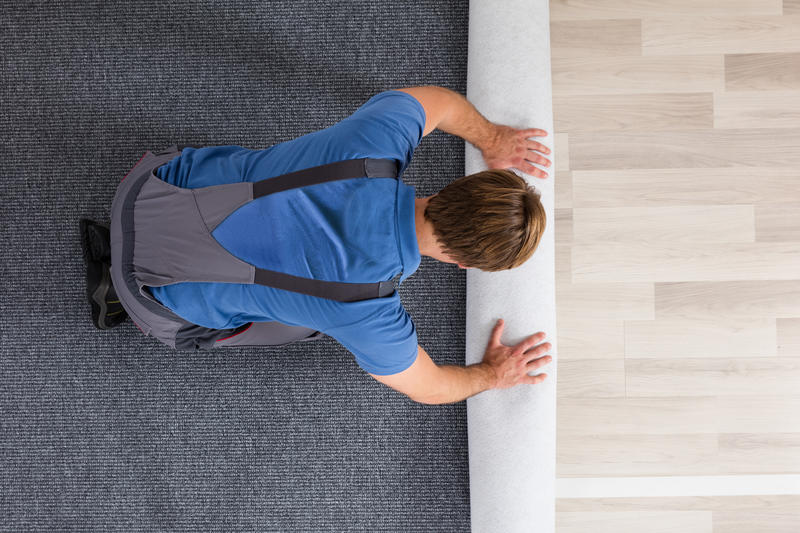
Hardwood Flooring Durability & Maintenance
Hardwood flooring can last for many years if well looked after which is one reason why it is often significantly more expensive than other flooring types.
Regular sweeping and mopping is recommended to reduce surface wear, and damp spots will need to be addressed quickly to avoid further damage to the wood, which will expand when damp.
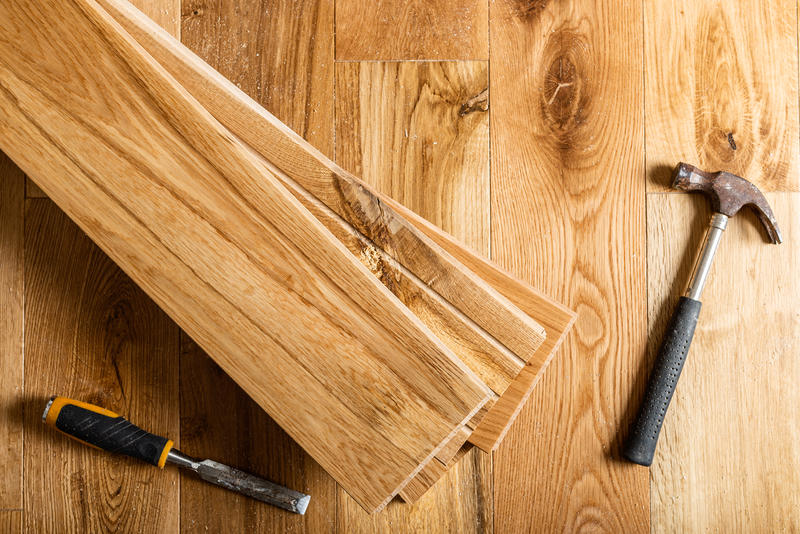
Vinyl Flooring Durability & Maintenance
Vinyl is a low maintenance flooring option, as the material is naturally scratch-resistant and water-resistant.
You can expect to get at least 10 years out of vinyl flooring with a simple, regular cleaning routine involving sweeping, mopping and wiping away spillages.
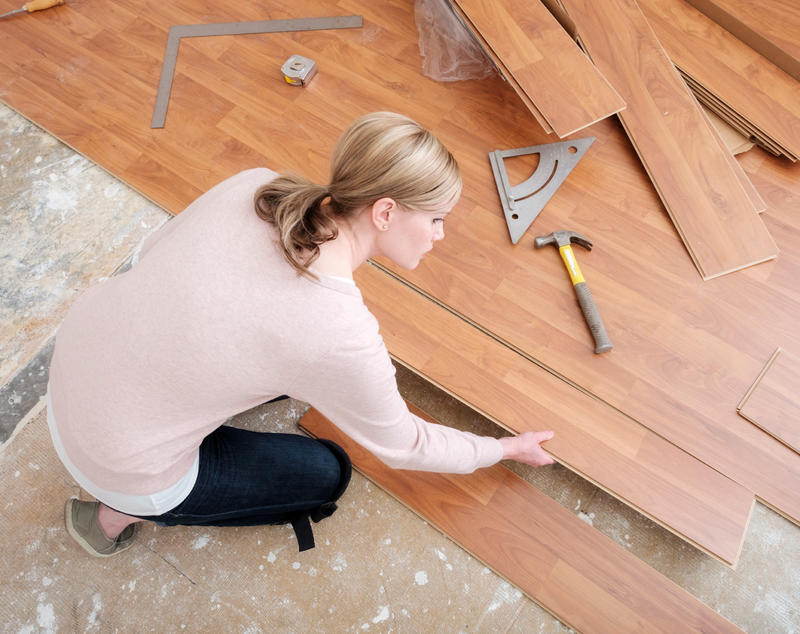
Laminate Flooring Durability & Maintenance
As with vinyl, laminate flooring is naturally resistant to scratches and makes a fantastic choice for someone looking for a low-maintenance, affordable flooring option.
Both water damage and improper installation can lead to warping, so it’s essential you take care when installing laminate (ideally hiring a professional), and soak up any spillages quickly.
With proper installation and regular cleaning, laminate flooring can also last in excess of 10 years.
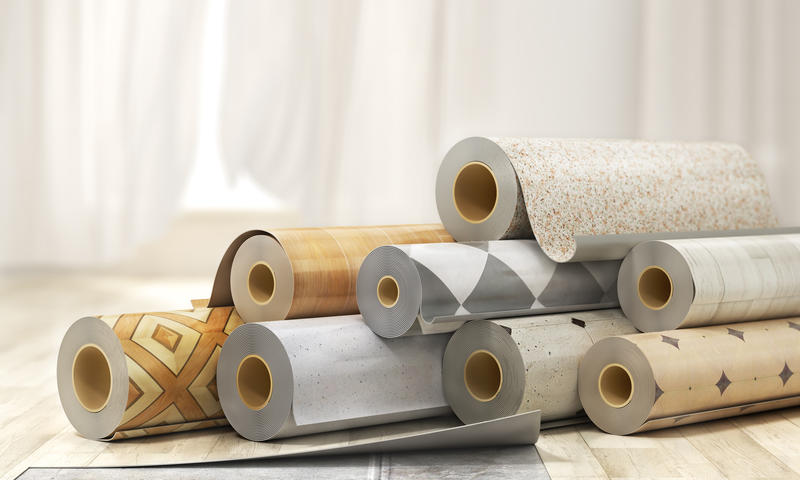
Carpeting vs Hardwood Flooring Costs
Carpeting Costs
The price of carpets varies widely, as there are many costs to consider when planning your budget – the size of your room, underlay, fitting, delivery and fitting tools. In addition to this, certain materials and intricate designs will add to the cost.
Carpets are generally priced by the square metre, ranging anywhere from £10 to £30 per square metre for cheaper options such as nylon and polypropylene, while at the higher end you can expect to pay at least £30-50 for a premium wool carpet.
A contract carpet will usually be a cheaper option than hardwood flooring, but both laminate and vinyl are more competitively priced to give you more options to choose from when a limited budget is the main factor.
Hardwood Flooring Costs
Hardwood flooring is among the most expensive options when it comes to flooring, requiring a bigger upfront investment when compared to vinyl and laminate. However with proper care, the durability of hardwood flooring can pay off over the long term.
Solid hardwood floors can cost anywhere between £80-120+ per square metre, with prices varying depending on the species. Softwoods and cheaper alternatives such as engineered timber can come in at a lower price point of £30-50+ per square metre.
These ranges only cover the costs of the materials, and you’ll need to consider the additional installation costs for a local professional to lay your flooring.
Vinyl Flooring Costs
Vinyl flooring is a much cheaper alternative to hardwood, although there is a wide range in quality of the finished product.
Expect to pay around £7-15 per square metre for budget vinyl sheets, with better quality planks costing between £15-30.
Laminate Flooring Costs
Laminate flooring is another budget-friendly option, with the cheapest prices being as little as £10 per square metre. As with other flooring types there is a wide range in the price and quality available, and you can generally expect to pay between £15-40 per square metre.
The Verdict - Which flooring is right for me?
There’s a lot that goes into choosing the ideal flooring, and hopefully you now have a better idea of the pros and cons of each type to make an informed choice!
To recap some of the main points:
Appearance
- If you’re looking for comfort, warmth, and/or vibrant colours, carpets are the perfect option.
- If you prefer the look of wooden floors, laminate and vinyl will do a good job of imitating real wood, however there’s simply nothing like the real thing!
Installation
- We’d strongly recommend a professional when it comes to installing carpets or hardwood floors.
- Laminate and vinyl flooring are more DIY-friendly, but professional installation will lead to the best results and long-lasting flooring.
Durability
- Hardwood flooring benefits from excellent durability, with vinyl and laminate also offering good levels of durability and typically requiring less maintenance than a carpet.
- With carpets you need to deal with stains and issues such as pulled loops, however many ‘heavy contract-rated’ carpets will stand up to the highest footfall with little wear and tear.
Cost
- Hardwood floors are generally the most expensive option, while carpets, laminate and vinyl flooring all compete at similar price points.
- Installation costs need to be factored in as well, with professional help strongly recommended for both carpeting and hardwood floors.
At Birch Carpets we have over 100 years of experience in supplying contract carpets to businesses and the public sector. Whether you’re looking for a twist pile carpet, textured and patterned carpets, or hard-wearing barrier entrance matting, we’re confident you’ll find the right carpet for your space when buying from us.
Every carpet in our range has a completely free sample available to order online, to make sure you’re happy with the texture and colour before purchasing.
And if you prefer a wood floor, our sister company Birch Distribution is one of the largest independent flooring distributors in the UK, where you can find everything from hardwood floors, to vinyl and laminate flooring, all in a wide choice of styles and grades.